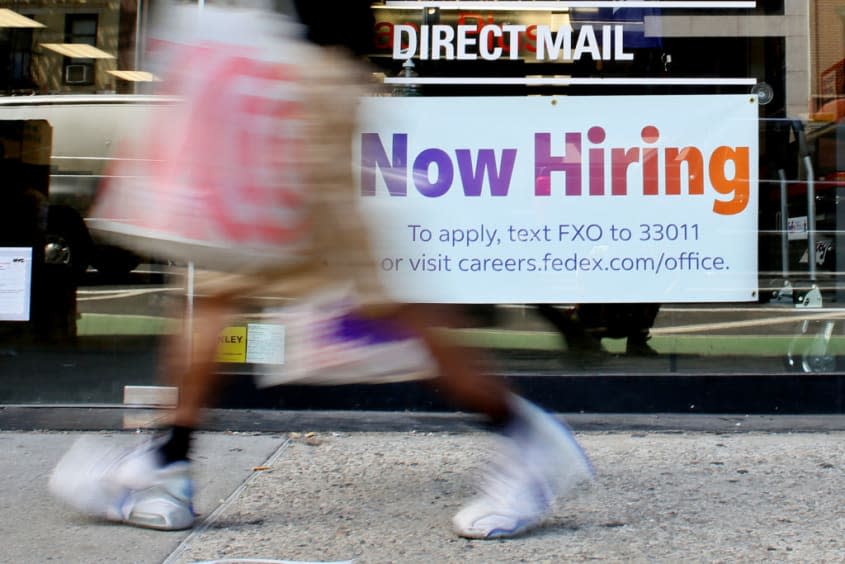Economy: U.S. adds jobs despite recession fears

The smartest insight and analysis, from all perspectives, rounded up from around the web:
After another stellar jobs report, it's time to give credit to the White House, said Paul Waldman in The Washington Post. Counting the 528,000 jobs added in July, "the U.S. economy has recovered all the jobs lost (22 million) when the economy shut down in 2020." It's the fastest employment bounce-back in this country's history. Some of it happened on former President Donald Trump's watch, but in his "first three years in office, before the COVID-19 pandemic hit, the economy added 6.5 million jobs." President Biden has already overseen the creation of 9.5 million jobs in half the time, giving him, "so far at least, the greatest job-creating record of any U.S. president." The passage of the American Rescue Plan in March 2021 gets a lot of blame for helping fuel the inflation we're now seeing. But lending all that support to individuals and businesses kept consumers flush and got people their jobs back, "averting what could have been a prolonged catastrophe."
The Biden administration is taking credit for the exceptional jobs number publicly, but privately "they mostly hoped it would be lower," said Ben White in Politico. The data "will almost certainly frighten the Federal Reserve into raising rates more and faster to slow the economy." With the unemployment rate at just 3.5 percent, employers are fighting for workers and offering higher wages to attract talent. That's normally a good thing. However, the Fed fears it "could create a wage/price spiral," in which higher labor costs are passed on to consumers. The latest report gives Fed chairman Jerome Powell the "green light to stay aggressive" on inflation, said Jonathan Levin in Bloomberg. Average hourly earnings rose another 0.5 percent last month from June. The uptick "was fairly broad-based across industries and sectors," with airlines — disrupted this summer by shortages of pilots and crew — being a prime example of a business that has been forced to hike wages to meet demand. The upward pressure on wages then feeds rising prices. Any way you look at it, taming inflation "will entail some level of trade-off with unemployment."
It's still a great market for job seekers and job-hoppers, said Chip Cutter in The Wall Street Journal. While job vacancies ticked down slightly last month, there is still an unprecedented number of openings (10.7 million). But "employers in hospitality, retail, health care, and other industries say they are seeing emerging signs that recruiting workers is becoming less of a challenge." Uber is having an easier time finding drivers and cites "inflationary pressures" as a motivator for "more people to drive for their service." "Fears of a recession also appear to be keeping workers in their existing jobs." It's time to say goodbye to the Great Resignation, said Zoe Han in MarketWatch. Workers still have bargaining power, but the "quits rate" among low-wage workers is clearly slowing down after peaking in early 2022. On the other hand, because employers have had such "a hard time hiring in the past year," they may be more willing to hang on to workers and "ride out this downturn," mitigating potential job losses.
This article was first published in the latest issue of The Week magazine. If you want to read more like it, you can try six risk-free issues of the magazine here.
You may also like
Justice Department investigating Southern Baptist Convention over handling of sex abuse

 money
money 